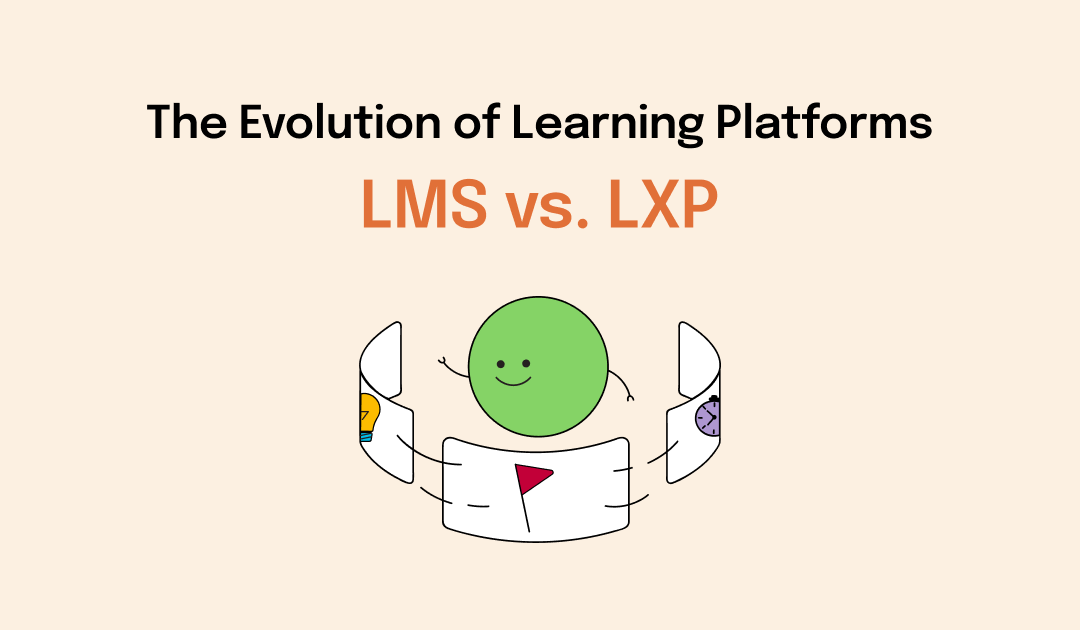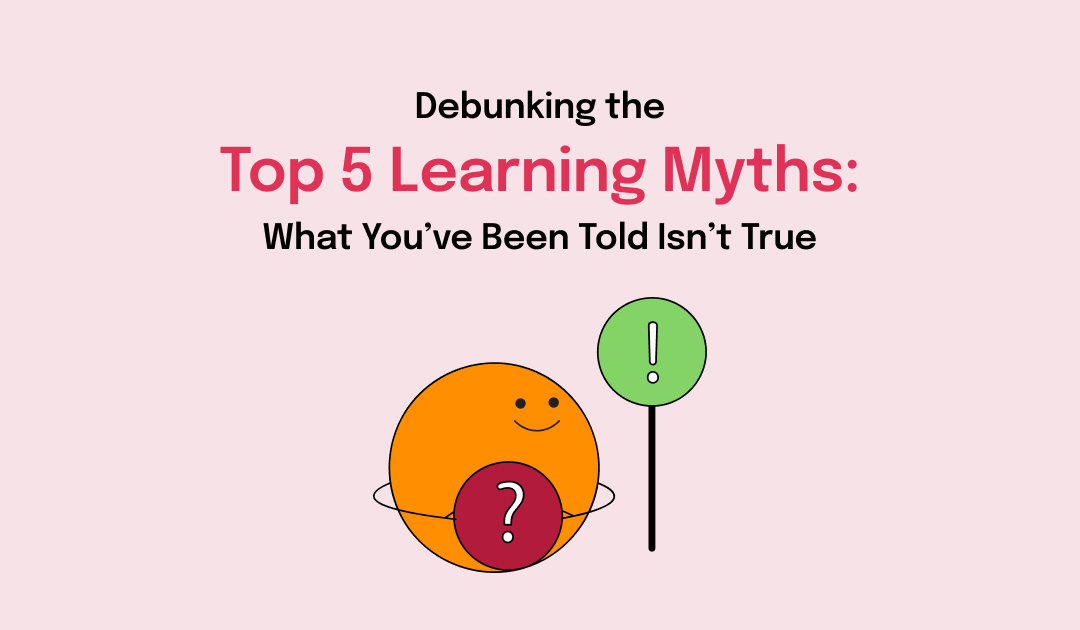The Evolution of Learning Platforms: LMS vs. LXP
In today's fast-paced and ever-evolving professional landscape, the way we learn and acquire new skills has undergone a radical transformation. Gone are the days when a classroom setting or a single, standardized method of instruction was sufficient to meet the diverse needs of learners. As organizations and individuals alike seek more effective, engaging, and personalized learning experiences, the platforms that deliver this content have become crucial to achieving these goals. Two major platforms that have come to the forefront are the Learning Management System (LMS) and the Learning Experience Platform (LXP). Each serves a unique purpose, and understanding their differences, strengths, and weaknesses can help organizations choose the right solution for their specific needs.
The Importance of Choosing the Right Learning Platform
Selecting the appropriate platform to deliver educational content isn't just a matter of convenience, it's a strategic decision that can impact employee engagement, skill development, and ultimately, the success of an organization. With the global e-learning market expected to reach $325 billion by 2025, the stakes are high. Companies that invest in the right learning platforms can expect to see improved employee performance, higher retention rates, and a more agile workforce prepared to meet future challenges.
The decision between an LMS and an LXP is not merely a choice between two technologies; it reflects a broader consideration of how learning is evolving in the digital age. As organizations strive to create learning environments that are not only effective but also engaging and adaptive, understanding the nuances of these platforms becomes essential.
Understanding LMS: The Traditional Workhorse
The Learning Management System (LMS) has been a staple in corporate and educational settings for decades. It was designed to centralize, deliver, and manage all learning activities within an organization. Think of an LMS as the workhorse of the learning ecosystem, reliable, efficient, and focused on getting the job done.
Key Features of LMS
An LMS provides a structured and organized approach to learning, which is crucial for compliance training, certification programs, and other formal educational requirements. Here are some of the key features:
- Course Management: LMS platforms allow administrators to create, assign, and track courses. This includes managing the curriculum, setting learning paths, and ensuring that all participants are progressing as expected.
- Assessment and Certification: One of the core functions of an LMS is to assess learners through quizzes, exams, and assignments. Upon completion, certifications can be awarded, ensuring that learners meet the required standards.
- Reporting and Analytics: LMS platforms provide robust reporting tools that enable organizations to track learner progress, completion rates, and other key metrics. This data is essential for compliance purposes and helps organizations measure the effectiveness of their training programs.
- Content Delivery: LMS platforms typically support a wide range of content formats, including text, video, audio, and interactive elements. This flexibility allows organizations to deliver comprehensive learning experiences.
- Compliance Management: For industries where compliance training is mandatory, LMS platforms offer the necessary tools to ensure that all employees complete required training and are compliant with industry standards.
Advantages of LMS
The Learning Management System (LMS) is known for its structured and organized approach to delivering corporate training. It excels in managing large-scale, compliance-driven programs, making it an ideal choice for organizations that require formal training, assessments, and certification. LMS platforms offer robust tracking and reporting tools, which help organizations monitor learner progress, measure the effectiveness of training programs, and ensure compliance with industry regulations. Additionally, LMS platforms are scalable and secure, allowing businesses of any size to deliver consistent training across various locations.
Disadvantages of LMS
Despite its strengths, the LMS has limitations, particularly when it comes to personalization and user engagement. LMS platforms are often criticized for their rigid, one-size-fits-all approach, which can hinder learners who prefer a more personalized experience. The user interface of many LMS platforms can feel outdated, leading to decreased engagement, especially among younger, tech-savvy users. Additionally, LMS systems may lack flexibility in content variety, often focusing on formal, organization-created material without allowing for learner-generated content or the integration of external resources, which can reduce overall learner satisfaction and engagement.
Understanding LXP: The New Frontier
The Learning Experience Platform (LXP) represents the next generation of learning platforms. Unlike the LMS, which is organization-centric, the LXP is learner-centric, focusing on providing a personalized and engaging learning experience. As the name suggests, an LXP prioritizes the learner's experience, making it a powerful tool for organizations that want to foster a culture of continuous learning and development.
Key Features of LXP
The LXP is designed to address many of the limitations of traditional LMS platforms. Here are some of the key features that set it apart:
- Personalization: AI-driven content recommendations based on learner behavior, role, and skills.
- Content Aggregation: Pulls content from multiple sources, including internal and external resources.
- Social Learning: Encourages collaboration, content sharing, and peer-to-peer discussions.
- User-Generated Content: Allows learners to contribute their own content to the platform.
- Microlearning: Delivers bite-sized learning modules that can be consumed quickly.
- Gamification: Includes rewards like badges and leaderboards to enhance engagement.
- Mobile Accessibility: Designed for mobile users, enabling learning anytime, anywhere.
- Integration: Seamlessly connects with existing LMS, HR systems, and third-party content providers.
Advantages of LXP
The Learning Experience Platform (LXP) offers a highly personalized, learner-centric approach to training and development. By using artificial intelligence to recommend tailored content, the LXP ensures that each learner receives a unique, relevant experience. It supports a wide variety of content formats, including user-generated content and materials from external sources, fostering a rich, diverse learning environment. LXPs also promote social learning and collaboration, enabling learners to share insights and engage in discussions. Additionally, features like gamification and microlearning help increase engagement and make learning more interactive and enjoyable, encouraging continuous development.
Disadvantages of LXP
While the LXP provides many benefits, it also comes with certain challenges. The advanced personalization and content aggregation features can add complexity, making implementation and management more resource-intensive. Integration with existing systems, such as legacy LMS platforms or HR tools, can also be difficult and time-consuming. Additionally, the vast amount of content available on LXPs can overwhelm some learners, potentially leading to content overload without proper guidance. The cost of implementing an LXP can be higher than traditional LMS platforms, particularly if it requires custom features or integrations.
The Right Choice for Corporate Training
Deciding between an LMS and LXP largely depends on the corporate training goals of your organization. Ultimately, the evolution of learning platforms reflects the changing needs of modern organizations. Whether through an LMS or an LXP, the key is to select a platform that aligns with your business goals, enhances corporate training, and supports the ongoing development of your workforce.
If you're interested in diving deeper into the nuances of LMS and LXP, we invite you to explore our comprehensive resource section. Download our in-depth guide to help you make an informed decision tailored to your specific needs.
Penned Sanjevi Jayaraman- Sr. Specialist - Content Design



